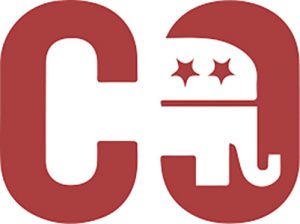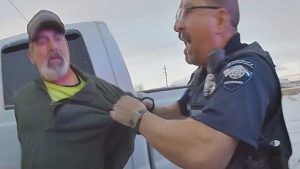By February 1914, the coal strike had become more political than violent. The real violence would come in April and May. Testimony in front of a congressional investigation committee in Denver and elsewhere gave a snapshot of the attitude of some of coal company officials as well as giving some mining details. For example, one mine official, C.L. Baum of the Golden Ash mine in the northern part of the state, said the average number of tons of coal produced, per day, per man, in his mine was a little over 11 tons. (Most of us would shudder on the toll that would take on a man’s back). Baum’s miner wage scale was $2.80 a day for top men and $3.80 for men in the bottom of the mine. He also admitted he
contributed one cent a ton to a fund for an coal operators association to advertise and for machine guns to defend against the strike. Further testimony showed that the financing of the Colorado National Guard in the strike zone was financed by banks – costing about $5,000 per day. The state did not have the money available for this at the time. Statements by Jesse Welborn, president of CF&I, summed up the company’s reaction to the strike. (By the way, Welborn’s pay was $30,000 a year). There were several dozen lives lost by this time and great suffering, all because operators failed to sign a contract with the union. An attorney asked Welborn if he felt any moral responsibility over such loss. Welborn replied, “Not in the least.” “Do you mean,” said the attorney, “to convey the impression that you feel no responsibility whatever?” Welborn replied, “I mean to convey that impression.” Welborn stated he was not surprised that so many miners went out on strike. “In fact ,we were surprised that so many men remained at work,” because he knew the methods of the United Mine Workers union. The main point the coal operators refused to budge on was recognizing the union. Baum told of the American Fuel company entering into a contract with the union and the next morning, more than 60 non-union men were discharged without their having an opportunity to join the union. So Baum’s company, Consolidated Coal and Coke Company, gave the men work. “I gave the men work and some are still working for me.” Other demands of the strikers included having their own check weighman working to ensure they were not cheated in the weighing of coal mined (on which their pay was based). Welborn claimed the men could have had their own check weighmen at any time. Welborn said the company had been careful in the selection of its mine guards. The company bought eight machine guns and a number of rifles because past experience with strikers taught them to prepare to protect their property. Conflicting testimony from many witnesses left the congressional committee to sift through the various statements. Information is from the Feb. 15, 1914, Pueblo Chieftain and from ‘Blood Passion,’ the book by Scott Martelle. Photo is of CF&I President Jesse Welborn.




